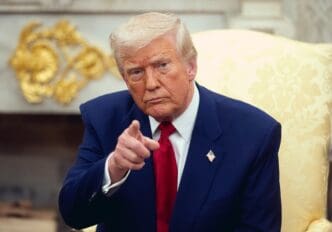Executive Summary
The Story So Far
Why This Matters
Who Thinks What?
President Donald Trump’s assertive rhetoric and expanded use of executive power, characterized by actions such as a social media post threatening intervention in Chicago and military engagement off Venezuela, are reportedly obscuring growing political weaknesses. Despite projecting an image of a strongman, the administration is navigating increasing scrutiny over its economic policies, facing significant legal setbacks, and encountering challenges in foreign policy, according to recent observations.
Executive Power and Assertive Stance
The administration’s approach has been marked by a willingness to double down on disruption and executive power. This includes a recent engagement where U.S. forces reportedly destroyed a speedboat off Venezuela, allegedly carrying drug traffickers. Officials responded to inquiries about the legality of the force with what was described as a display of machismo, with claims that the vessel was linked to the Tren de Aragua gang.
Critics argue that while such actions may serve as political distractions, they also raise questions about constitutional authority, particularly regarding the president’s power to wage war without congressional approval. The frenetic pace of the administration and its perceived tests of the Constitution have had a disorienting impact on the political landscape.
Economic Performance Under Scrutiny
Concerns are mounting regarding the economic impact of President Trump’s distinctive theories on trade and government intervention. A recent jobs report indicated negative job growth in June, coupled with high unemployment rates. The report also highlighted the effects of tariffs and immigration policies on hiring, with the manufacturing sector reportedly taking a particular hit.
The article notes that by some measures, the economy under the previous administration was stronger. If a perceived disconnect between the administration’s claims of falling prices and the reality experienced by Americans deepens, it could have significant political repercussions, similar to past debates over inflation.
Legal and Judicial Setbacks
The administration faced a series of unfavorable rulings in courts last week, temporarily disrupting several policy priorities. A landmark Supreme Court decision on President Trump’s tariff policy is pending, with Treasury Secretary Scott Bessent reportedly stating that a government loss could be “terrible.”
District courts delivered multiple setbacks. One judge ruled that President Trump’s deployment of the federalized National Guard to California violated the law. Another U.S. judge deemed the use of the Alien Enemies Act to deport Venezuelan gang members illegal. Furthermore, a federal judge ruled against the administration’s blocking of funding for Harvard, and another froze the termination of temporary status for over a million Haitians and Venezuelans living in the U.S.
Foreign Policy Challenges
In foreign policy, the perceived failure of President Trump’s summit with Russian President Vladimir Putin was underscored by a recent extensive air assault on Kyiv, described as the war’s largest to date. The article questions the implications of such events for President Trump’s diplomatic approach. Following the assault, President Trump informed reporters of his readiness to impose tougher sanctions on Russia.
Public Health and Political Landscape
A Senate hearing involving Health and Human Services Secretary Robert F. Kennedy Jr. raised concerns about potential disruptions to public health. The article suggests this performance may prompt questions about whether the election outcome reflects a public desire to dismantle advancements made through vaccines.
While President Trump’s approval ratings remain in the low to mid-40s, a range he has often occupied, there is speculation about whether this support could waver if the economy further deteriorates. The recent jobs report may prompt interest rate cuts, but the administration’s efforts to influence the independence of the central bank remain a long-term issue.
Overall, President Trump’s administration appears to be entering a phase where its assertive tactics and executive actions are increasingly being weighed against their tangible impacts on the economy, legal standing, and international relations. These developments suggest a period of heightened political and policy challenges for the administration.








